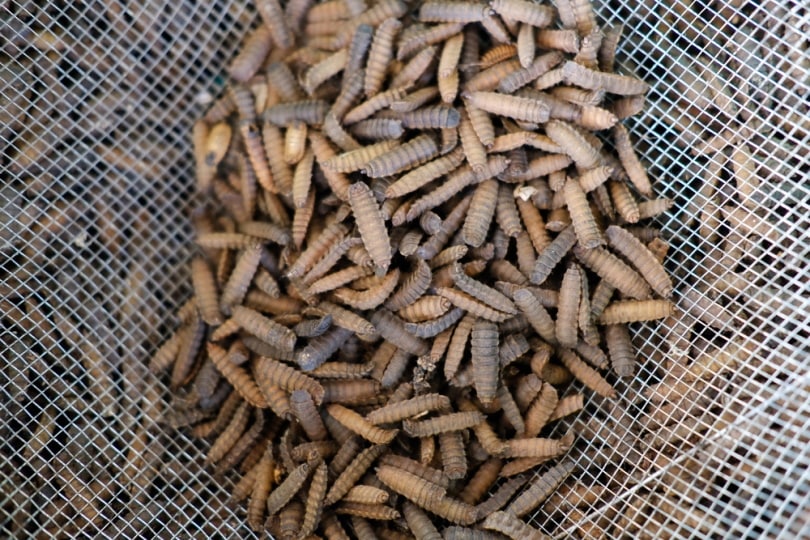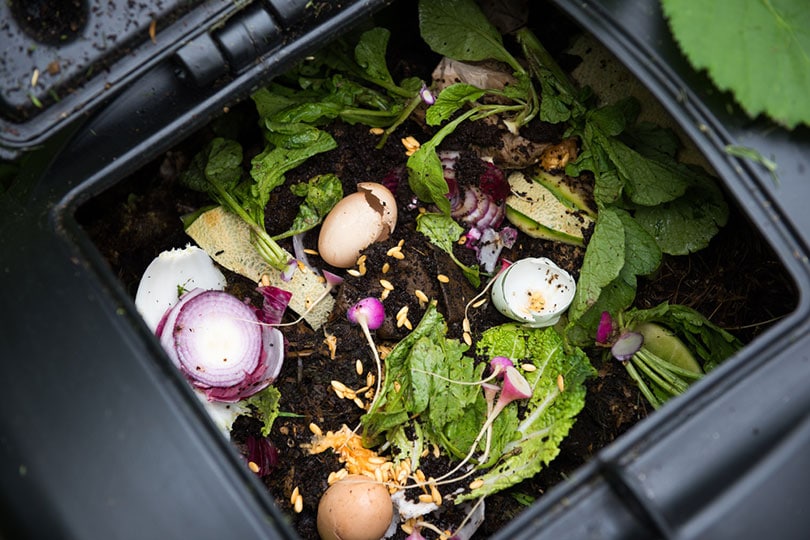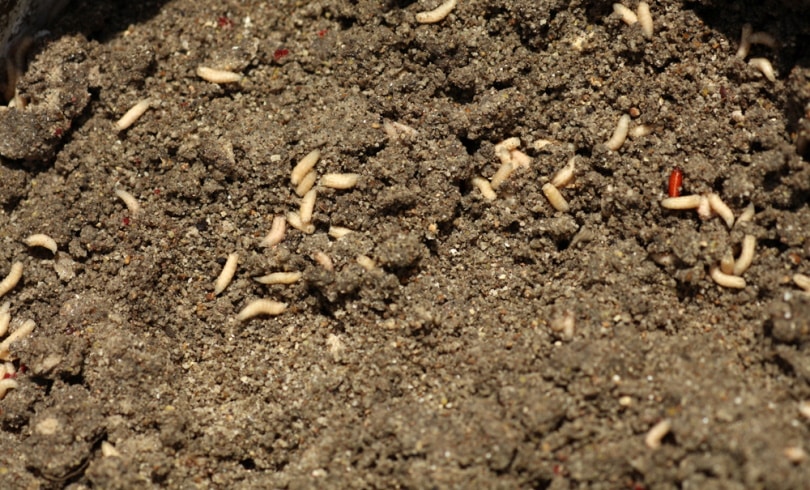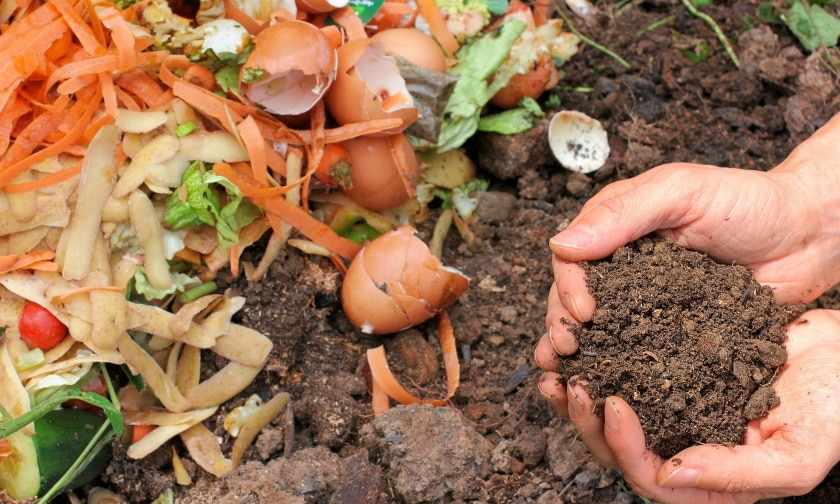There Are Maggots in My Compost — Is That Good?
-
Codee Chessher
- Last updated:

Compost attracts all kinds of small critters, like worms, mites, snails, and more. You might be surprised to go look at your compost and find that it has maggots crawling around in it. While maggots are usually a sign that something’s wrong, they’re actually good for compost! In moderation, that is.
Along with other creepy crawlies, maggots help break down food waste and other organic material into compost. By processing the matter in the compost, maggots help aerate the compost and further decompose it. Let’s check out how maggots are beneficial for compost, when they’re not beneficial, and how to effectively use them.
What Maggots Typically Appear in Compost?
The maggots that commonly inhabit compost piles are the larval form of black soldier flies1, a large fly similar in appearance to mud dauber wasps. This makes them much larger and fatter than the maggots that come from fruit flies and house flies.
Black soldier flies lay between 200–650 eggs in decaying matter, where they hatch into maggots. These maggots are so good at composting that entire niche industries, such as grub and maggot farming, have taken off. They wriggle around and exclusively eat decaying matter, meaning they don’t bite.
Some of the critters will die off in the compost, serving as food for the others to further enhance the compost. As we mentioned, they’ll eat anything as long as it’s decaying.
You won’t see these maggots alongside other types of maggots because black soldier flies will kill or repel other flies from their breeding grounds. Plus, compost has natural pesticidal properties.

Why Do Maggots Appear in Compost?
Black soldier flies are attracted to the abundant decaying organic matter in your compost, making it an ideal place for them to lay eggs and reproduce. They also like warm temperatures, and compost generates a fair amount of heat. Combined with adequate moisture, it’s the perfect place for maggots as well as tons of other bugs.
There are several reasons that maggots appear in compost.
These include:
- Not aerating your compost well enough. If you don’t periodically aerate your compost with a pitchfork, the moisture within will skyrocket, creating an attractive environment for maggots.
- Not enough brown material. Brown material dries out your compost and makes it less likely to attract black soldier flies.
- Too much green material, especially near the top of your compost pile. Less green material gives maggots less food and means fewer survive to reproduce.

Can Maggots Hurt Your Compost?
We already said that maggots are helpful for compost, so what gives? Well, it turns out that too many maggots can be detrimental to the delicate biological and chemical makeup of your compost pile. They can also indicate an upset in the ratio of green material and brown material in your compost.
With too many maggots and not enough material in your compost, they’ll suck up all the nutritious organic matter and convert it to a slimy sludge that has no value to your compost at all. Given the rate that they feed and reproduce, it’s easy for your compost pile to get overrun by maggots.

How to Get Rid of Maggots in Compost
If you dislike the idea of maggots in your compost for whatever reason, there are numerous ways you can make your compost inhospitable or otherwise unattractive to black soldier flies. Using these tips will help prevent maggots from wriggling around in your compost.
- Add brown material, especially to the top of your compost. While compost should be mixed up, having brown material at the top will discourage black soldier flies from laying eggs because they lay eggs in moist and decaying matter.
- Add lime to your compost. Adding a small amount of lime to your compost and mixing it up will raise the pH levels of the compost, causing ammonium nitrogen to turn into ammonia gas. This gas is fatally toxic to maggots.
- Add a screen to your compost bin. This is a simple yet effective way to prevent black soldier flies from getting into your compost in the first place.
- Reduce green material. While you need some green for the compost to decompose properly, too much green material will attract black soldier flies.

Conclusion
Maggots are a gross, yet not necessarily harmful, addition to compost piles. Too many can have adverse effects on it, though, so you need to keep an eye on your compost to make sure they aren’t sludging it up. Or you can take steps to repel and prevent black soldier flies from laying eggs in the compost.
Featured Image Credit: Faizal Afnan, Shutterstock
Contents
